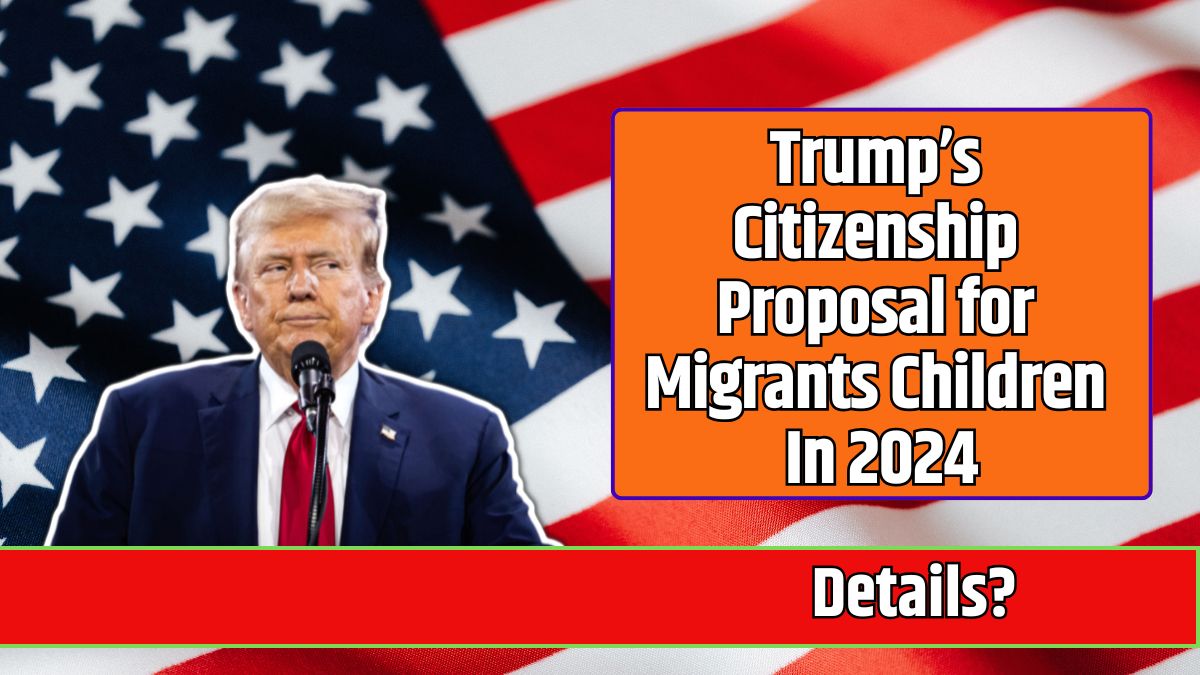Donald Trump’s recent proposal to eliminate automatic citizenship for children born to foreign nationals in the U.S. has sparked widespread discussion.
If enacted, this policy could reshape the landscape of birthright citizenship, a cornerstone of American immigration law since the 14th Amendment. Let’s dive into what this means for migrants and their children.
Birthright Redefined
Under Trump’s plan, the automatic granting of U.S. citizenship would no longer apply universally to children born on U.S. soil. Instead, at least one parent must either be a naturalized U.S. citizen or hold legal permanent residency (a Green Card).
This proposal marks a sharp departure from the current policy, where nearly all children born in the U.S., regardless of their parents’ immigration status, are granted citizenship.
This change targets undocumented migrants and those waiting in long immigration backlogs. By tying citizenship to the status of the parents, Trump’s plan could leave many children stateless or dependent on uncertain immigration paths.
Impact on Migrant Communities
The implications of this proposal are particularly significant for migrants already navigating complex immigration systems. For instance, many H-1B visa holders, who face long waits for Green Cards due to annual caps, would no longer see their U.S.-born children automatically acquire citizenship.
Families stuck in these backlogs—often spanning decades—could face even greater uncertainty.
This shift could also impact undocumented migrants. The elimination of birthright citizenship for their children may push them further into the shadows, as their children would be excluded from many opportunities tied to U.S. citizenship.
A Shift in Immigration Priorities
Trump’s views on broader immigration policies add context to this proposal. While critical of undocumented migration, he has also expressed interest in making immigration easier for skilled workers.
He has floated the idea of automatic Green Cards for international students graduating from U.S. universities, including those in two-year programs.
However, this selective approach highlights a potential paradox: while seeking to attract global talent, Trump’s policies may simultaneously restrict opportunities for millions of migrants contributing to the U.S. economy in other capacities.
Challenges for Implementation
Legally, Trump’s proposed changes face hurdles. Birthright citizenship is rooted in the 14th Amendment, which states that all individuals born in the U.S. are citizens.
Changing this would likely require a constitutional amendment, an arduous process that demands widespread political support. Alternatively, Trump may attempt to enact the policy through executive orders or federal agency directives, which would likely lead to legal challenges.
Broader Implications
This proposal has reignited debates on immigration reform and national identity. Opponents argue that restricting birthright citizenship could violate fundamental American principles and exacerbate inequality, particularly for children born into disadvantaged circumstances.
Supporters, however, see it as a measure to curb undocumented migration and uphold the integrity of the immigration system.
For migrants and their families, these proposed changes underscore the precarious nature of immigration policies, which can shift dramatically with political tides. Whether this proposal becomes law remains uncertain, but it’s clear that its potential effects could reshape the future for countless families.
The debate around Trump’s citizenship proposal reflects the broader struggle over immigration policy in the U.S., balancing the nation’s historical values with modern challenges.



















